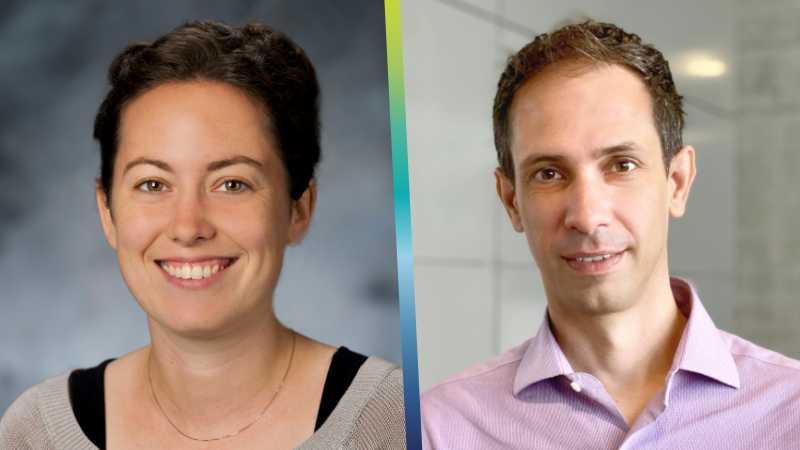It is our great pleasure to welcome Adele Doyle and Otger Campàs as new Core Group Leaders at the Cluster of Excellence Physics of Life! Both officially started on July 1st.
Adele Doyle leads the research group Mechanobiology of Stem Cells, hosted at the Center for Regenerative Therapies Dresden (CRTD) at TU Dresden. Using approaches from engineering, biology, and computer science, her group studies how molecular circuits enable specialized mechanosignaling. The interdisciplinary team investigates how stem cells learn to respond to mechanical forces and electrical cues during the development of the nervous and cardiovascular systems, and how biophysical cues affect cell states of health or disease. The Doyle group seeks quantitative insights to help design cell and regenerative medicine therapies for neural and vascular applications.
Otger Campàs holds the Chair of Tissue Dynamics and leads the research group Physics of Embryonic Self-Organization and Morphogenesis. His interdisciplinary team bridges physics (theory and experiments), biology and engineering to study how cells self-organize to build embryonic structures. His lab has already developed several new techniques to measure and perturb mechanical forces and material properties within 3D multicellular systems, including organoids and developing embryos. These unique tools open new avenues to study the role of mechanics (mechanical feedbacks, mechanobiology, biomechanics and biophysics) in vivo and in situ, as recently shown by their discovery of fluid-to-solid jamming transitions in embryogenesis. The Campàs lab is currently hosted at the Max Planck Institute of Molecular Cell Biology and Genetics (MPI-CBG).
